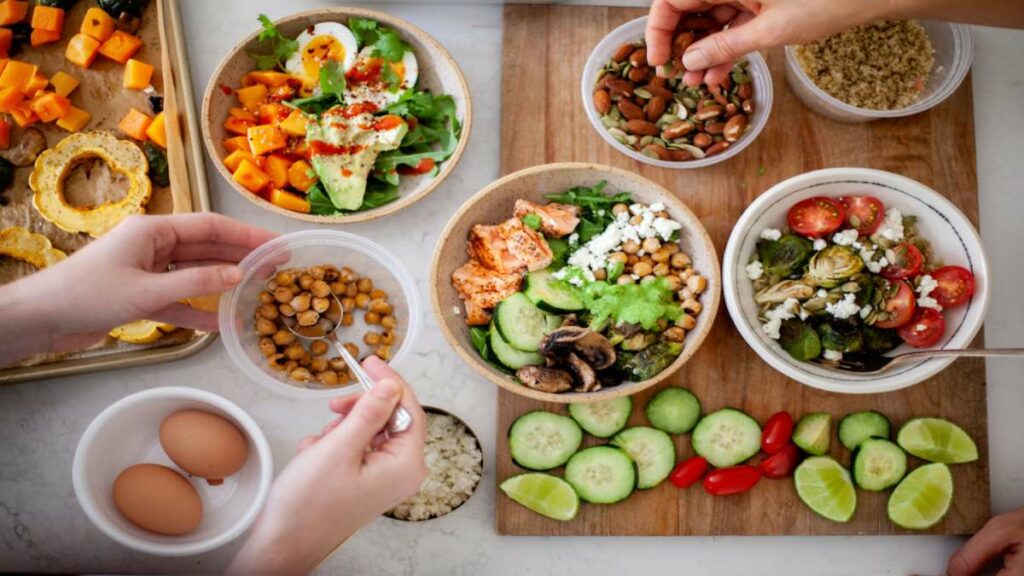With the arrival of a new year comes a surge in interest in diet, health, and reversing the past six weeks of overindulgence. Even though you might feel pressured to spend a lot of money on a juice fast or detox program, the truth is that our everyday eating habits have the biggest impact on our weight and metabolism.
Because of this, the best thing you can do to feel a little better and maybe lose a few kg is to think about the small daily adjustments that can have a big impact on your total intake of calories and macronutrients, without resorting to diets, deprivation, or guilt.
Change your order for coffee
Enjoy a piccolo or shot of espresso if that’s what you have for breakfast. However, if your usual breakfast consists of nothing but several milk-based coffees, there might be a more effective way to get your caffeine fix. Coffee doesn’t have many calories by itself, but drinking a lot of milk increases our intake of sugar. Even though milk contains natural sugars, they can still accumulate, particularly if you drink a large latte several times a day. Barista-made coffee is typically higher in fats and sugars than unsweetened “milk” varieties that you can buy in supermarkets, which may appeal to plant-milk enthusiasts.
Solution:
Limit your coffee consumption to espresso or small milk-based drinks, and have one or two each day with a meal rather than in place of one.
Change when you eat meals
The days of everyone eating breakfast at home first thing in the morning, taking a break for lunch at 12 pm, and then having dinner promptly at 6 pm are long gone. Currently, after long workdays, rushing the kids to activities, and going to the gym, breakfast is frequently skipped or substituted with coffee, lunch is postponed until the middle of the afternoon, and dinner may not be enjoyed until 8 or even 9 o’clock. The problem with eating more in the second half of the day is that, in addition to making us more prone to upset stomachs at night, we also frequently don’t feel hungry in the morning. Eventually, this may result in a cycle of weight gain because the body is regulated by circadian rhythm and other factors.
Solution:
Eat breakfast by 8 a.m. and lunch by 1 p.m. to aim for at least 12 hours without eating during the night. If you typically eat dinner later in the evening, consider having something lighter.
Change the portions on your plates
When was the last time you had half a plate full of veggies or salad? For most people, most likely quite some time. Meat and carbohydrates like pasta or rice typically occupy the majority of the space on our plates, with a few vegetables serving as garnish. To enhance your overall nutrient intake and aid in weight control, the simplest and most effective method is to include two to three cups of salad or vegetables with every meal. You will consume much more fibre and vitamins, which support digestive health and improve your daily mood, in addition to eating fewer calories overall.
Solution:
To make your salads and vegetable dishes more appetizing and tasty, add dressings, roasted vegetables, and flavorful sauces.
Focus on protein at every meal
Increase your consumption of veggies and salad, but don’t completely cut out protein. More and more research indicates that getting enough protein is crucial for those of us entering our 40s and 50s. In addition to preventing the loss of muscle mass and lowering metabolic rate, eating enough protein can help maximize the absorption of important nutrients like calcium and iron and reduce the body’s need for carbs as fuel. Adults should aim to consume one gram of protein per kilogram of body weight daily, but because our meals and snacks are so high in carbohydrates, many of us do not get nearly enough of it. Make it a point to include a protein-rich food like this in your diet in order to meet your daily protein requirement.
Solution:
Give special attention to snack foods high in protein, like yoghurt, almonds, tuna, salmon, and protein bars.
Consider a bright day
Many fasting regimens promote low-calorie days or cutting back on the number of meals eaten each day. While these strategies may be effective for certain people, it is equally beneficial to plan ahead and include a lighter, lower-calorie day once a week to help offset the higher-calorie days that the majority of us frequently enjoy. Here, eating lower-calorie foods—like salads, veggie-based meals, and even shakes—is a simple method to cut back on calories overall and help combat overindulgence without going overboard or becoming unduly restrictive.
To load up on essential nutrients and reconnect with your natural hunger after periods of overeating, make it a habit to eat lightly one day a week, focusing on soups, salads, white fish, and fruit.

